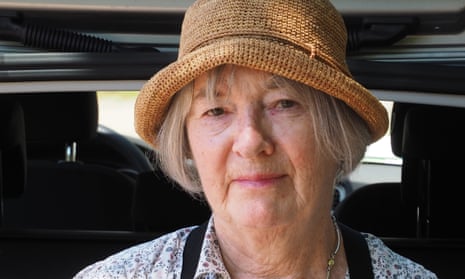In 1985 two professional developments defined the path of Amanda Holden’s work until her sudden and unexpected death at the age of 73. She worked on her first opera translation, Don Giovanni, for Jonathan Miller at English National Opera (ENO), which made her realise that, in addition to her profound musical understanding and knowledge, she had the wordsmith’s talent required to craft opera translations. This opened up a fruitful avenue that eventually led to her creating more than 60 opera translations.
At almost the same moment, she conceived the idea of a reference work on opera that was to be an enormous scholarly enterprise. Together with Stephen Walsh and Nicholas Kenyon, and Rodney Milnes as consultant editor, she put together a proposal for a substantial operatic reference based on composers that would sit between the rather limited selection of the Kobbé opera guide and the rather prolix New Grove Opera. Peter Mayer at Penguin decided to go with the idea, and so Amanda faced the daunting task of recruiting and monitoring more than 100 contributors from all over the world.
The result, initially appearing in 1993 as The Viking Opera Guide, was achieved with her special blend of charm and rigour, and the result has endured in various changing formats, now being re-edited for an online version, while a more streamlined variant is available on Amazon Kindle as The Opera Guide. As a result of this huge work, Amanda became one of the most profoundly knowledgable people about the whole opera legacy, and someone extraordinarily well connected with musicologists across the globe. This expertise informed her work as an opera translator.

Amanda translated operas from many different languages and was widely praised for her acute sense of style, for her adroit rhyming, and for her profound musicality, which always directed her precise linguistic choices. She was a real expert in this peculiarly nuanced branch of translation, where the translator must not only capture the style and sense of the original but must also fit the result perfectly to the given rhythm of the music, also being sensitive to the way that the choice of vowel acutely influences the ability to sing a particular passage freely and expressively.
Extremely generous with her time, she was willing to spend many hours discussing a project with the director and conductor and was alert to the way in which she could best serve the intentions of a particular performance. She was open and tolerant of all shades of interpretation, but at the same time would rigorously defend the integrity of the original. Her skill was to find solutions that assisted a desired interpretation without damaging the original, and she brought great flair to this process.
Her understanding of the complete context of the performance was crucial, and meant that she really was more of a dramaturg than a mere translator – she was totally involved with the overall artistic ambition of the event. A case in point was her last new work – a translation of Così Fan Tutte for Longborough Festival Opera, directed by Sam Brown earlier this year, a task that gave her great satisfaction as it completed her roster of Mozart/Da Ponte operas.
Brown described Amanda’s generosity in being willing to discuss with him all the aspects of his production, in always coming up with better solutions to any problem moments, and in being both tough and tolerant of every idea that had serious intentions behind it. This appreciation was shared by other directors with whom she collaborated, from Graham Vick, the Alden brothers and Richard Jones to David McVicar, with whom she had been extremely happy working on Falstaff at Scottish Opera immediately before her death.
All this experience and expertise came together in the creation of a small group of original opera libretti. In particular she worked with Brett Dean on Bliss (2010) and Mark-Anthony Turnage on The Silver Tassie (2000), for which she won an Olivier award the following year, and, on a smaller scale, a very witty libretto, Family Matters (2004), for Tête à Tête, based on Beaumarchais’ La Mère Coupable. In 2019 she worked closely with the Danish composer Hans Abrahamsen on a translation of his opera The Snow Queen for the Bavarian State Opera in Munich.
Amanda was born in London into a high-octane, talented family. Her father, Sir Brian Warren, was a highly civilised man with a great love for music and flowers (shared by his daughter), and a successful “society doctor” – his patients included the prime minister Edward Heath. Her mother, Josephine Barnes, was a distinguished gynaecologist and outspoken campaigner for women’s health who was later made a dame. Amanda embodied the delicate charm of her father alongside the rigour and discipline of her mother, and this made her at the same time exceedingly engaging and a little bit awesome.
After leaving Benenden school in Kent, and before going to Lady Margaret Hall, Oxford, to study music, Amanda studied in Munich with Maria Landes-Hindemith, sister-in-law of the composer, and more importantly spent almost every evening at the opera in an era when that ensemble was full of wonderful singers such as Fritz Wunderlich. More significantly still, they performed almost the entire repertoire in German translation – proof that translation does not automatically mean artistic compromise.
At Oxford she led the Oxford University Opera Club through one of its most creative eras, including world premieres by Richard Morris (Agamemnon – libretto by Anthony Holden) and Stephen Oliver (The Duchess of Malfi), who became a close friend.
I met Amanda around this time in appropriate circumstances: we were by chance next to each other in the “standing places” queue at Covent Garden and had not even spoken to one another when a man came strolling along the queue and, obviously deciding we were an attractive young couple, gave us two adjacent top-price seats. We were good friends from then on.
Shortly after leaving Oxford in 1971 Amanda married Holden, at that point a rookie reporter on the Watford Gazette and later a biographer, and Times and Observer journalist.
Amanda took the accompanist course at the Guildhall School of Music – she was an accomplished pianist – and later she also studied music therapy. In 1974 she established the music department at Charing Cross hospital’s centre for children with learning difficulties, but, while she held several teaching positions, including at Guildhall, the next decade was devoted primarily to her family, bringing up three sons, Sam, Joe and Ben.
Amanda and Tony divorced in 1988. She is survived by her partner, Andrew Clements, music critic of the Guardian, her sons and four grandchildren; by a sister, Penny, and brother, Antony; and by two half-brothers, Benedict and Marcus.
Amanda Holden, librettist, translator and pianist, born 19 January 1948; died 7 September 2021

Comments (…)
Sign in or create your Guardian account to join the discussion